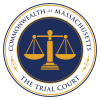- Trial Court Law Libraries
Alexander Hamilton wrote about “The Judiciary Department” in Federalist No. 78. In what have become known as the Federalist Papers, Hamilton, James Madison and John Jay wrote 85 articles and essays under the pseudonym of Publius in an effort to convince the citizens of New York to ratify the United States Constitution. Federalist No. 78 speaks of the need for an independent judiciary.
Hamilton’s essay reads, in part, “The complete independence of the courts of justice is peculiarly essential in a limited Constitution. By a limited Constitution, I understand one which contains certain specified exceptions to the legislative authority. . . Limitations of this kind can be preserved in practice no other way than through the medium of courts of justice, whose duty it must be to declare all acts contrary to the manifest tenor of the Constitution void. Without this, all the reservations of particular rights or privileges would amount to nothing.”
And “this independence of the judges is equally requisite to guard the Constitution and the rights of individuals from the effects of those ill humors, which the arts of designing men, or the influence of particular conjunctures, sometimes disseminate among the people themselves, and which, though they speedily give place to better information, and more deliberate reflection, have a tendency, in the meantime, to occasion dangerous innovations in the government, and serious oppressions of the minor party in the community.”
Article III of the United States Constitution vests federal judicial power “in one Supreme Court, and in such inferior courts as the Congress may from time to time ordain and establish” and outlines the scope of that power.
In the landmark U.S. Supreme Court case, Marbury v. Madison, 5 U.S. 137 (1803), Chief Justice Marshall established the principle of judicial review. Judicial review, as defined by Black’s Law Dictionary, is “a court’s power to review the actions of other branches or levels of government; esp. the court’s power to invalidate legislative and executive actions as being unconstitutional.”
